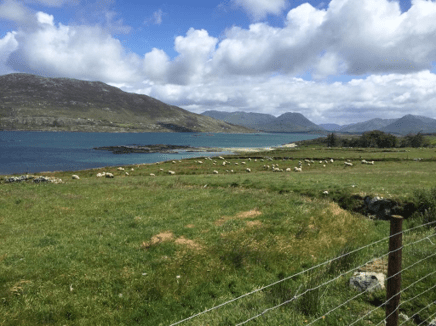The hill sector is currently under-represented in the national breed improvement programme as there is less of an underlying breeding structure compared to the lowland sector. This is something that Sheep Ireland would like to see change, and some new initiatives and technologies have recently started to do just that. These will serve as examples of what can be achieved via parentage recording and genotyping in pedigree hill flocks. Currently, Sheep Ireland host the Donegal Wicklow Cheviot and the Mayo-Connemara Blackface flockbooks. The hill sector provides a source income from marginal land, helps maintain the flora and fauna developed over 1000’s of years and provides valuable maternal genetics to the lowland sector.
Last week, Kevin Mc Dermott, Sheep Ireland presented at the National Hill Sheep Conference 2021 on Hill flockbooks: providing a foundation to protect and progress hill breeds and the sector. Kevin outlined the importance of having a hill breed flockbook; protection from breed dilution of other strains and inbreeding, a strong foundation for systematic breed improvement and a platform to increase promotion of a breed. To get the process of setting up a hill flockbook, there are 3 levels of entry to parentage recording; Genotype all stock rams, single sire mate for 1 or 2 cycles and match lambs to mothers at birth and finally the flock would begin performance recording (weighing of lambs at crucial points in their growth stages). Where hill breeders decide to join LambPlus, they will get a subsidised cost for genotyping from €24.50 to €15 per head. There is merit in at least genotyping high valued rams fit for sales and who have a significant influence on the breeding programme of the flock.
The most important take home messages Kevin highlighted; parentage recording in hill breeds is possible, different methods are available to most flocks and most importantly, parentage recording is one of the best tools we have to protect and promote hill breeds in Ireland.

